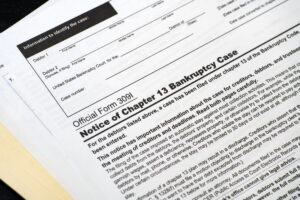One of the things that you’ll learn during a initial consultation with a bankruptcy attorney is whether or not you’ll be able to file Chapter 7 or Chapter 13 bankruptcy. Given that Chapter 7 will eliminate all dischargeable debts within about 90 days from filing and doesn’t require the debtor to repay any discharged debts, Chapter 7 is often the better option. Unfortunately, an individual can’t simply choose which chapter he will file.
In order to qualify for Chapter 7, we have to look at your last six months of income. We’ll total all of your income, and divide that number by six to get a monthly average. Then we take your monthly average and multiply it by twelve (12) to get your annual income. Your annual income must be below the median income for your household size.
If your annual income is below the median income for your household, then we’ll take a look at your monthly take home pay and compare it to your monthly expenses to make sure that there isn’t too much money left over at the end of the month, which could force you into Chapter 13 or exploring other repayment options, like debt consolidation.
But if your annual income is over the median income for your household size, we have to complete the means test. The means test requires greater scrutiny of your income and expenses. You’ll be able to include some expenses and not other, as well as include some income sources and not others.
Fortunately, social security income is excluded from calculation of income for means test purposes. This can be especially important if one spouse works while the other is receiving social security benefits or if a child of one of the filers is receiving benefits.
Keep in mind, however, that even if leaving social security benefits off the means test will allow you to pass the test, you still have to include social security income in the calculation I mentioned above that looks at your monthly take home income and expenses. Again, if there is too much money left over at the end of the month, you might be forced to file Chapter 13.
As you can imagine, filing bankruptcy involves more than just plugging in numbers or filling in blanks. Consider sitting down with a bankruptcy attorney for a free consultation to see if bankruptcy is your best option or if you have any concerns that you might not be able file bankruptcy.


